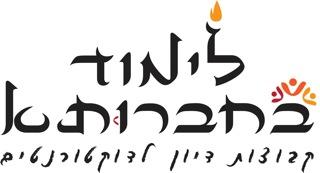"יותר משכל ישר: פילולוגיה להלכה ולמעשה" (איתי קגן – מקרא)/ "More than Common Sense: Philology in Theory and in Practice" (Itai Kagan)
הפילולוגיה היא מן הדיסציפלינות הוותיקות במדעי הרוח. במוסדות מסוימים, כמו האוניברסיטה העברית, היא זוכה למקום של כבוד בתוכניות הלימודים ובמחקר, והיא נחשבת לדרך המלך בחקר טקסטים עתיקים. אף על פי כן, בשנים האחרונות הופנו חיצי ביקורת שנונים כלפי המתודולוגיה הפילולוגית, וזאת משני כיוונים: מחד, חוקרים מדיסציפלינות תאורטיות, כגון בלשנות או ספרות משווה, טוענים שהפילולוגיה חסרה מסד תאורטי מוצק, ושהיא מתנהלת מתוך אינטואיציות, מסורות מקומיות ו"שכל ישר" שקשה להגדיר ולבסס. מכיוון אחר, עולה הטענה שיש בפילולוגיה בעייה אתית, שכן היא מנציחה את עליונות "השכל הישר" של אוכלוסייה מסוימת, שאינו שווה בהכרח לאינטואיציות של אוכלוסיות אחרות.
כדי להתמודד עם ביקורת זו, הקבוצה "יותר משכל ישר: פילולוגיה להלכה ולמעשה" תאגד תלמידי מחקר המשתמשים בפילולוגיה במחקרם ההיסטורי, הספרותי או הבלשני, ומפוזרים בתחומים שונים במדעי הרוח. מטרת הקבוצה היא לכונן שיח רפלקטיבי על המתודולוגיה הפילולוגית, שאכן אין לה "תאוריה" במובן המקובל, ושאיננה נלמדת באופן מופשט, אלא כ"תורה שבעל פה" בכל חוג וחוג. מפגשי הקבוצה ידונו במקצועות השונים של הפילולוגיה והמשתתפים יעשירו זה את זה בתובנות המתודולוגיות שצברו בהכשרתם ובניסיונם. בנוסף, יתקיימו דיונים בשאלות רפלקטיביות מופשטות: האם ישנה "תאוריה" פילולוגית? האם ראוי שתהיה? האם יש דרך "אובייקטיבית" לפרש ממצא טקסטואלי? מה היא החשיבות של הפילולוגיה באקדמיה ובחברה בכלל? האם לשימוש בפילולוגיה יש השלכות אתיות, שליליות/ חיוביות?
לפרטים: איתי קגן, החוג למקרא- Itai.Kagan@mail.huji.ac.il
Philology is one of the oldest disciplines in the humanities. In some institutions, such as the Hebrew University, it has a place of honor in teaching and in research, being the method par excellence in the study of ancient texts. However, in recent years philology has received slings and arrows of criticism from two directions: on one side, researchers from theoretical disciplines such as linguistics or comparative literature claim that philology lacks a solid theoretical foundation, and that it is conducted based on intuitions, local traditions and “common sense” which is difficult to define or ground. On the other side, it is claimed that philology is ethically problematic, since it perpetuates the superiority of the “common sense” of a certain demographic, which is not necessarily the same as the intuition of other demographics.
To deal with this critique, the group “More than Common Sense: Philology in Theory and in Practice” will bring together research students who use philology in their historical, literary or linguistic research, and are scattered across different disciplines of the humanities. The purpose of the group is to establish a reflective discourse on philological methodology, which indeed does not have a “theory” in the conventional sense, and which is not taught abstractly, but as a distinct “oral tradition” in every department. The group will discuss the various fields of philology, and the participants will enrich each other with methodological insights they have gained from their training and experience. In addition, we will discuss abstract reflective questions: Is there a philological “theory”? Should there be one? Is there an “objective” way to interpret textual data? What is the importance of philology in academia and society in general? Does the use of philology have ethical consequences, whether negative or positive?
For details: Itai Kagan, Department of Biblical Studies - Itai.Kagan@mail.huji.ac.il

